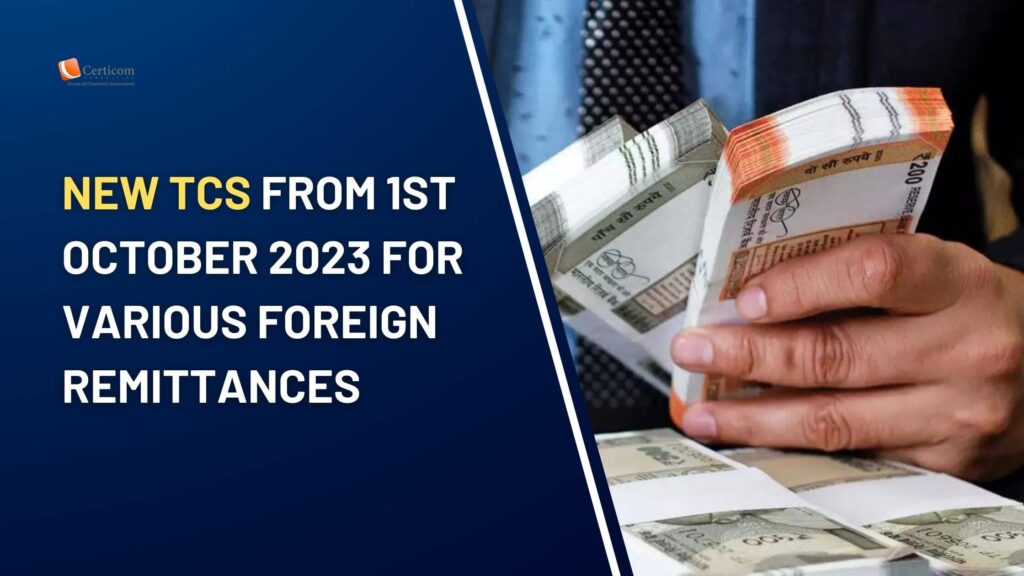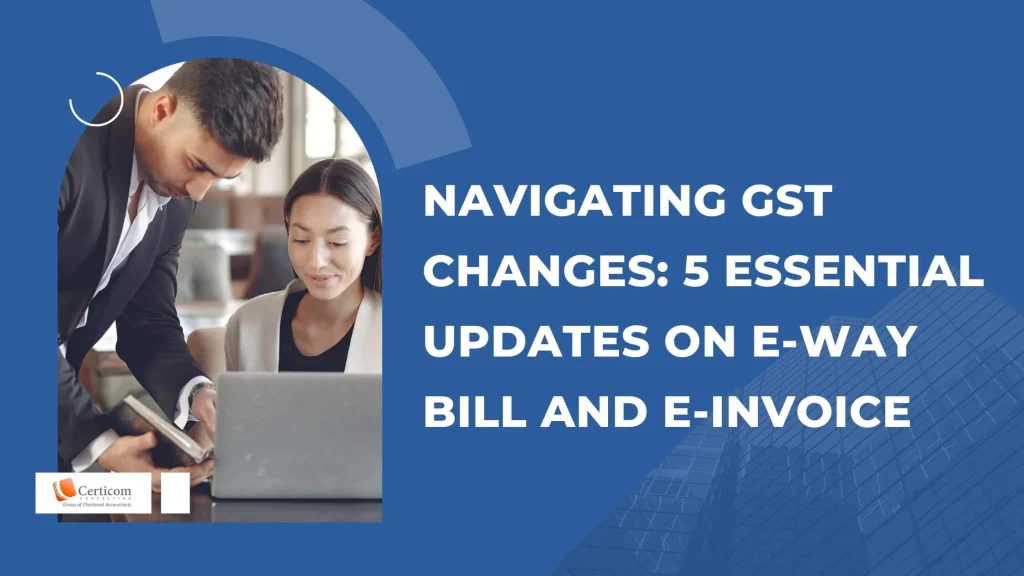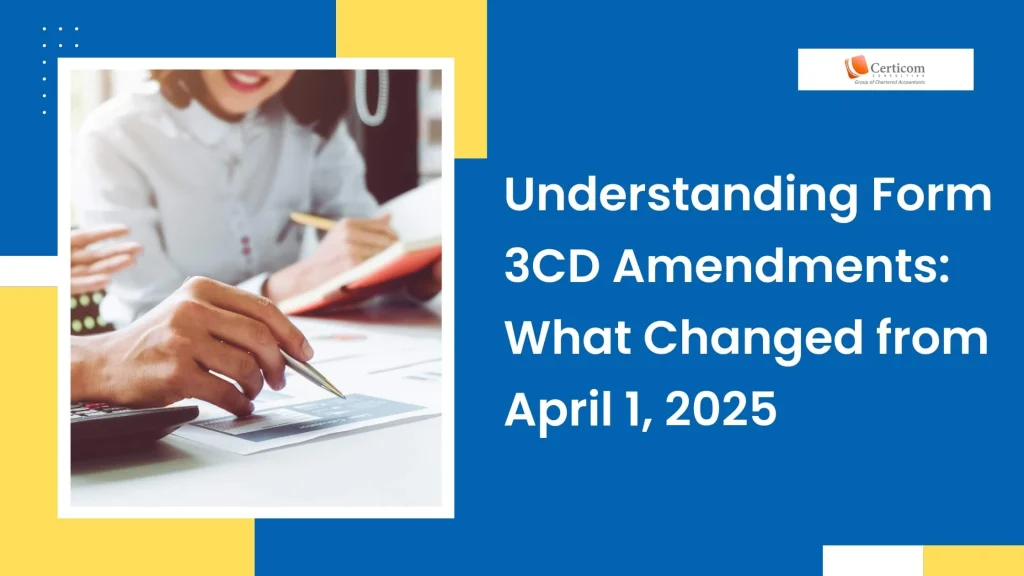New TCS from 1st October 2023 for various foreign remittances

Educational Purposes
If the amount being sent is less than Rs 7 lakhs, there is no Tax Collection at Source (TCS) applied to international transfers made for educational purposes. However, a modest TCS rate of 0.5% kicks in if the amount being sent for schooling surpasses Rs 7 lakhs. It’s crucial to be aware that a slightly higher TCS rate of 5% is applied if the remittance for schooling is not loan-funded. This makes sure that higher educational costs over Rs 7 lakhs are subject to a fair TCS.
Medical Purposes
If the sum exceeds Rs 7 lakhs, a 5% TCS is taken on remittances meant for medical expenses. The rate of TCS is unchanged for all travel-related and incidental costs for both medical and educational treatments, according to clarification from the Ministry of Finance. This means that costs like a child’s hostel fees while they are studying abroad might also be regarded as money sent for medical expenditures.
Foreign Tour
Currently, there is no set threshold for the 5% TCS that applies to international tour packages. This holds true for the full price of the tour package. However, a TCS of 5% will continue to be applicable beginning on October 1 on purchases of abroad tour packages up to Rs 7 lakhs in a financial year.
A higher TCS rate of 20% will be used when the total cost of the travel package exceeds Rs 7 lakhs. This huge rise in TCS seeks to control outgoing remittances to foreign recipients, which might include a variety of costs such bank account transfers, forex card loading, foreign exchange, travel expenses, and business visits.

Investments
A TCS rate of 20% will be applied to investments made abroad, including as buying stocks, mutual funds, and cryptocurrencies, if the investment value exceeds Rs 7 lakhs. However, no TCS will be applied if the investment is below this cutoff point.
The exemption promotes modest-sized investments. Understanding that investments made in domestic mutual funds with exposure to overseas stocks would not be regarded as remittances under the Liberalized Remittance Scheme (LRS) and, consequently, not be subject to TCS, is key.
Credit Card Transactions
The Liberalized Remittance Scheme (LRS) does not apply to credit card purchases. As a result, TCS is not responsible for them.
The distinction between payment methods must be made, though, as both debit cards and foreign currency cards are subject to LRS laws. The particular objective of the transaction determines whether TCS is billed on certain cards or not.
Related Post
Pros and Cons of Presumptive Taxation Scheme for Professionals
Understanding Form 3CD Amendments: What Changed from April 1, 2025
Book A One To One Consultation Now For FREE
How can we help? *




